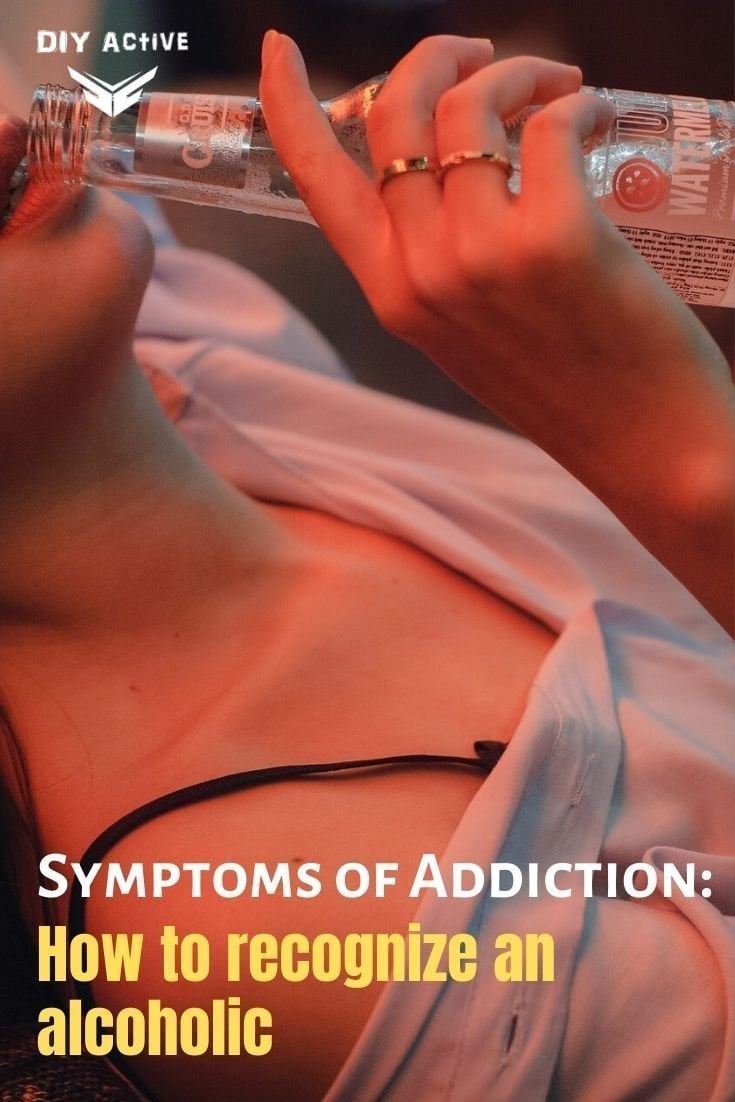
Symptoms of Addiction
Alcoholism, like other addictions, manifests itself in a rather subjective way and at first, is difficult to assess not only by outsiders but also by the addict himself. Even the first glance at the symptoms that are described for the first or second phase of alcohol addiction (pre-alcohol and warning) can not give any food for thought.
Symptoms of Addiction
Although their addiction will be stronger, many people at this stage will seemingly look like occasional drinkers. Observations are therefore significantly impeded here.
So, what are the symptoms of addiction, and how to diagnose alcoholism?
4 Stages of Alcoholism: Basic symptoms of addiction
According to the official classification used in medicine, psychology, and addiction treatment centers, the symptoms of alcoholism can be divided into four stages of the course of alcoholism, which increase with addiction.
Initial Phase
 The initial, pre-alcohol phase are mainly psychological symptoms that will be virtually unnoticeable to an outside observer. The alcoholic will drink like people who occasionally reach for drinks, i.e. at parties, birthdays, or with friends.
The initial, pre-alcohol phase are mainly psychological symptoms that will be virtually unnoticeable to an outside observer. The alcoholic will drink like people who occasionally reach for drinks, i.e. at parties, birthdays, or with friends.
The difference between an addictive person and a healthy one will be here, however, a mental approach – for a potential alcoholic, drinking will prove to be particularly pleasant and relaxing, and therefore will start to treat alcohol as a means of improving bad mood or de-stressing.
Such people may subconsciously create opportunities to drink more often.
Warning Phase
The warning phase is the next stage in the severity of alcoholism, in which memory gaps occur after consuming a larger amount of alcohol. People, who at this stage should be described as addicted, can also see:
- Tendency to accelerate the pace of drinking, e.g. during a party
- A significant change in behavior under the influence of alcohol
- Desire to drink secretly and alone
The alcoholic may feel remorse at this stage about his drinking, although he does not yet allow himself to think that he may actually be addicted.
Critical Phase
The critical phase is already quite serious and an advanced state of alcoholism, in which an addict loses control over drinking.
People in this phase are most often aware of their addiction and become highly oversensitive about it – they perceive criticisms of excessive drinking as aggression, reacting negatively, and often trying to prove by force that they have no problem at all and can give up drinking at any moment.
Short periods of abstinence, however, are only a test of strength, which always ends with a return to drinking. The most important symptoms are ordering life in terms of drinking, neglecting work, family, and social life, as well as physical symptoms in the form of craving.
Chronic Phase
The chronic phase is the last stage of alcoholism, in which all remorse and inhibitions lose with the compelling need to reach for another dose of alcohol. It doesn’t matter the time of day, the occasion, or even the alcoholic drink.
Drinking also affects health here, dulling intellectual functions, reducing mobility, causing frequent headaches or vomiting due to temporary withdrawal of alcohol.
Wrap-Up
Look for these symptoms of addiction and you could help a loved one!



